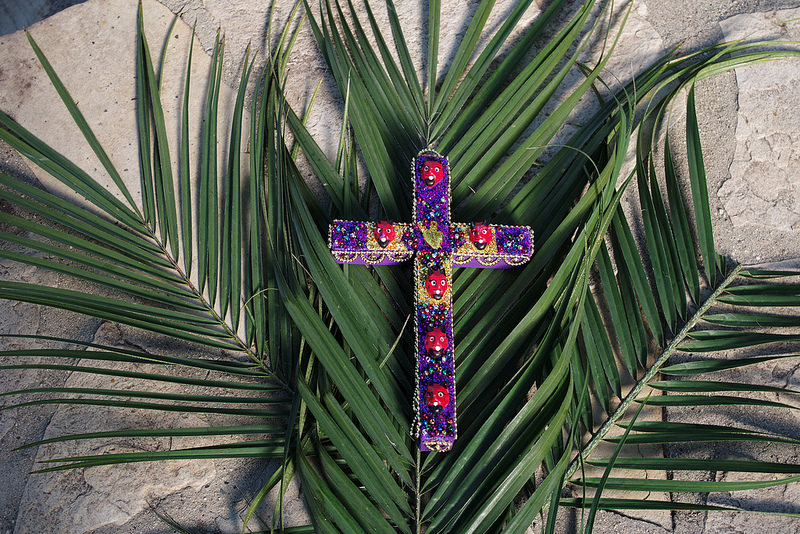|
In Biblical days, lavish processions were conducted to celebrate various types of victories. When David returned from killing the giant "the women came out from all the towns of Israel to meet King Saul with singing and dancing, with joyful songs and with tambourines and lutes." (1 Samuel 18:6) At the dedication of the rebuilt wall of Jerusalem, the Levites and priests and singers marched up to the wall in festive celebration. "Ezra the scribe led the procession." (Nehemiah 12:36) God's goodness and desire to tabernacle with humanity was celebrated during the Feast of Sukkot. Parading through Jerusalem to the Temple, worshipers waved what was called a lulab (branches of myrtle, willow and palm) as they recited Psalm 118. In part, this says, "The Lord is God and has made His light shine upon us. With boughs in hand, join in the festal procession up to the horns of the altar." (Verse 27)
All of this brings us to the time when Jesus joined the crowds who gathered in Jerusalem to celebrate Passover. Jesus had just raised Lazarus from the dead, and many had heard about this miraculous sign. Here is how John 12:12-13 describes it: "The next day the great crowd that had come for the Feast heard that Jesus was on His way to Jerusalem. They took palm branches and went out to meet Him, shouting, 'Hosanna!' 'Blessed is He who comes in the name of the Lord!' 'Blessed is the King of Israel.'" Luke adds some different details to the description of the procession: "As He went along, people spread their cloaks on the road. When they came near the place where the road goes down the Mount of Olives, the whole crowd of disciples began joyfully to praise God in loud voices for all the miracles they had seen. 'Blessed is the King who comes in the name of the Lord!' 'Peace in heaven and glory in the highest!'" (Luke 19:36-38) The crowds in Jerusalem were willing to follow Jesus as long as He was leading them where they wanted to go. However, this victory parade that celebrated the man who raised Lazarus from the dead would lead to a Cross. For Jesus to fulfill His mission and have the ultimate victory over death, He Himself would have to die. His mission included the expansion of the Kingdom of God. He told His disciples, "I tell you the truth, unless a kernel of wheat falls to the ground and dies, it remains only a single seed. But if it dies, it produces many seeds." (John 12:24) The crowd's expectation that Jesus would be the king who would bring down the Roman army and restore their nation to its former glory were to be dashed. In a few days the peoples' commitment to follow their king changed, and they shouted for Jesus to be crucified. They did not understand that the ultimate victory of resurrection life began at the Cross. The apostle Paul explains it well in 2 Corinthians 2:14. "But thanks be to God, who always leads us in triumphal procession in Christ and through us spreads everywhere the fragrance of the knowledge of Him." Will we join the procession knowing that we must submit to His will and walk the road of sacrifice? We must finish the victory procession by carrying our crosses (Luke 14:27) and following the King wherever He leads us. |
Joan E. MathiasCategories
All
Archives
July 2024
|

 RSS Feed
RSS Feed